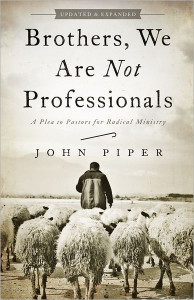For your Friday: Five comparisons between cults and Christianity.
1. A cult will give you a set of rules and things to do to achieve special status or salvation.
Christianity says: “For by grace you have been saved through faith. And this is not your own doing, it is the give of God.” – Ephesians 2:8
There is nothing we can do to achieve right standing before God.
2. A cult will give you a set of requirements you must keep to maintain your status in the group.
Christianity says: “Come to me, all who labor and are heavy laden, and I will give you rest.” – Matthew 11:28
Working to maintain our status or salvation is a false idol that leads to fatigue and a tired soul.
3. A cult will tell you not to associate with those outside of your group who have rejected your message – including your family.
Christianity says: “But I say to you who hear, Love your enemies, do good to those who hate you, bless those who curse you, pray for those who abuse you.” – Luke 6:27-28
Christians must actively engage and love those outside the church.
*Editors note: The point I am communicating here is not that all those outside the church are our enemies. What I am attempting to communicate here is that if we are to love EVEN our enemies, and pray EVEN for those who would seek to abuse us, then certainly we are to love and engage anyone outside the church, enemy or not.
4. A cult will claim special revelation that is only achievable by joining their group.
Christianity says: “When the Spirit of truth comes, he will guide you into all the truth, for he will not speak on his own authority, but whatever he hears he will speak, and he will declare to you the things that are to come.” – John 16:13
The Holy Spirit is given to all who believe, not those who give a certain amount of money or do certain things. Jesus is the Way and the Truth. Anyone who claims special revelation outside of Christ is leading you astray.
5. A cult will deny either the work or deity of Jesus Christ.
Christianity says: “No one who denies the Son has the Father. Whoever confesses the Son has the Father also.” – 1 John 2:23
“But when Christ had offered for all time a single sacrifice for sins, he sat down at the right hand of God…For by a single offering he has perfected for all time those who are being sanctified.” – Hebrews 10:12, 14
Christ is the Son of God, who has made a one-time sacrifice for all sin.
As a young seminary student, one of the first questions my friends ask me is “So, what classes are you taking?” Those who know me well know that I am currently about to go into my third semester of Koine Greek studies. When asked about these classes, I’m often met with one of two responses:
- That is so cool! You must be learning all kinds of new things that you just can’t learn without the Greek text!
- What is that for? Don’t we have the English translations?
I never know how to answer either of these types of responses. In fact, when I first began taking these classes I was a little bit at a loss, as I was unable to explain why they are important. Are the studies of original languages (OL) really that fundamental? Can the church function without it? What about the average lay-person, do they need to know them? Should all pastors be able to reference the OL’s, or is it just meant for the research scholars? In an attempt to be able to provide some answers to my friends and the Church, I am going to spend the next three posts discussing the importance of language studies. The remainder of this post will be spent on the general importance and summons to original language studies. The following posts will deal with defending the accuracy of the text and the truth of the text from error, as well as wrestling with an understanding of the nuances and meaning behind the OL’s.
Before I begin, let me remind the reader that at the time of this post I am only entering my third semester of Greek studies. I have yet to even study the Hebrew alphabet, nor enter the pulpit. By no means am I elevating myself as an expert, nor am I elevating a “two-class” Christianity where those who know the languages are better than those without. I am but a novice, at best. I will however advocate a position stressing the importance of OL studies to pastors and the Church.
Brothers, Bitzer was a Banker
I’ve been reading through John Piper’s book entitled Brothers, We Are Not Professionals. What an amazing blessing this book has been to me at this time in my training. In this text, Piper has a chapter entitled “Brothers, Bitzer was a Banker”. The chapter begins by telling of a book released in 1969 entitled Light on the Path. This text is a daily dose of Scripture readings in both the Hebrew and Greek, and is meant to help pastors preserve and improve their ability to interpret the Bible from the OL’s.
The editor’s name was Heinrich Bitzer. He was a banker.
Piper continues this chapter by asking the question “Must we be admonished by the sheep as to what our responsibility is as shepherds?” He cites several important reasons why pastors should be able to wrestle with the OL’s. I will cite several of these reasons below, either paraphrased or directly quoted from this chapter:
- “First, the confidence of pastors to determine the precise meaning of Biblical texts diminishes. And with the confidence to interpret rigorously goes the confidence to preach powerfully.”
- Having to depend on the various (differing) English translations tends to discourage careful textual analysis in sermon preparation. As soon as you really start paying attention to tenses, conjunctions and vocabulary the versions are too diverse to provide a sure analysis. So the preacher often contents himself with the general focus or flavor of the text, and his exposition lacks the precision and clarity which excite a congregation with the Word of God. Boring generalities curse many pulpits.
- For example, most of the modern English translations (RSV, NIV, NASB, NLT) do not enable the expositor to see that “have fruit” in Romans 6:22 links with “bear fruit” five verses later in Romans 7:4. They all translate Romans 6:22 without the word fruit.
- “So what we find in groups where Greek and Hebrew are not cherished and pursued and promoted is that expository preaching—which devotes a good bit of the sermon to explaining the meaning of the text—is not much esteemed by the preachers or taught in the seminaries.”
- “Weakness in Greek and Hebrew also gives rise to exegetical imprecision and carelessness. And exegetical imprecision is the mother of liberal theology.”
- “Where pastors can no longer articulate and defend doctrine by a reasonable and careful appeal to the original meaning of Biblical texts, they will tend to become close-minded traditionalists who clutch their inherited ideas, or open-ended pluralists who don’t put much stock in doctrinal formulations. In both cases the succeeding generations will be theologically impoverished and susceptible to error.”
I can think of no better way to end this section than with Piper’s closing words to his chapter:
Let’s give heed to the word of Martin Luther: “As dear as the gospel is to us all, let us as hard contend with its language.” Bitzer did. And Bitzer was a banker!
The Lowest Common Denominator
If we took a survey of the Church today (specifically the American Church), I would contend that we would find more churches without pastors trained in the languages than those with. For that matter, how many seminaries are still requiring the OL’s? Of those that do, how many require anything more than one semester?
I’ve spoken to many leaders who are ten or more years out of Seminary, and they’ve all but forgotten their OL training. Many I’ve spoken to will say something along the lines of “I have a concordance and Bible software now; it does all the work for me.” Friends, I fear this is similar to walking onto a football field with all of the equipment yet not knowing the rules of the game. Having the tools at our disposal is an important start, but we must know how to play the game!
Many critics will argue that languages are best left to the experts. After all, quite a bit of work is necessary to go from a student who knows the vocabulary, to a scholar who works for translation boards. And this is true. But is there not room in the middle for our pastors to have a working knowledge of the texts from which they preach each week? As Piper also questions in his book, “We have, by and large, lost the Biblical vision of a pastor as one who is mighty in the Scriptures, apt to teach, competent to confute opponents, and able to penetrate to the unity of the whole counsel of God. Is it healthy or biblical for the church to cultivate an eldership of pastors (weak in the Word) and an eldership of professors (strong in the Word)?” When we “leave the work to the experts”, we have essentially separated and professionalized the work of the shepherd into a completely separate role.
One of my favorite artists and poets Propaganda raps in one of his songs: “…See the presence of good art will unconsciously refine a community, and poor art will do an incalculable harm…” I believe this same concept can be applied to our teaching philosophies inside (and outside) the Church. The presence of educated, expository preaching and teaching will unconsciously refine and build up our church communities. Without it, we are stuck teaching to the lowest common denominator, and this will do an incalculable harm. We are already seeing the effects of this, as preachers uneducated in the Word of God are taking the pulpit and preaching all kinds of wishy-washy doctrines, swaying to and fro with lofty opinions and flat out damning interpretations of the text.
If we want to see our Church maintain solid preaching and teaching, we must not neglect the study of the OL’s.
Give them the Bread, not the Bread Factory
It is the responsibility of every preacher in the pulpits to teach the whole counsel of God. James tells us that not many of us should strive to become teachers, as we will be judged more severely (James 3:1). How then can we preach the whole counsel of God and teach to the level at which we are demanded if we cannot understand the languages in which the Word was written? When we are unable to read through the original languages ourselves, we become enslaved to the commentaries. Unable to work through these things on our own, we can but only trust what other people have said on these matters. The Prince of Preachers CH Spurgeon has this to say:
“A man to comment well should be able to read the Bible in the original. Every minister should aim at a tolerable proficiency both in the Hebrew and the Greek. These two languages will give him a library at a small expense, an inexhaustible thesaurus, a mine of spiritual wealth. Really, the effort of acquiring a language is not so prodigious that brethren of moderate abilities should so frequently shrink from the attempt. A minister ought to attain enough of these tongues to be at least able to make out a passage by the aid of a lexicon, so as to be sure that he is not misinterpreting the Spirit of God in his discoursings, but is, as nearly as he can judge, giving forth what the Lord intended to reveal by the language employed. “
Truly, it is the job of the preacher to deliver the bread, not the bread factory. We need not all be scholars, but should we not have the capability to understand the particulars of the language and why certain tenses or constructions are used – and thus its importance on the message?
—–
I know most of you were probably hoping to see some language examples. I am saving those for the other two posts. However, I hope we can all begin to see the importance of the continual study of the OL’s to pastors and the church. For those of us in the Western Church, we have so many resources readily available to assist us in this. To neglect the resources and funding we have at our disposal that much of the global church does not have is simply irresponsible. This is not something that can continue to go neglected in our seminaries and churches today.
What does this mean for us now? Pastors, if you find your OL skills lacking let this be an encouragement for you to refresh your skills. Consider signing up to audit the language courses at your local school, picking up Light on the Path or breaking out your old primers and start working through them. Students, do not neglect your studies thinking the software and commentaries will do all of the work for you. Continue to strengthen your skills and exegesis while you can.
Lay-persons, you may be asking what this all has to do with you. Let me also encourage you that you need not sit this one out. There are plenty of resources out there for you to be able to work through. Consider picking up a key word study bible or an interlinear text (one where the English and OL are next to each other), a concordance, or a copy of something like Logos Bible Study software. Ask your pastors to lead a Bible study workshop at your church. Being able to pick up on small nuances, such as knowing that what many translations render as “servant of Christ” could actually be rendered “slave” (coming from the word δοῦλός) can provide immediate depth and richness to your studies.
Let us encourage and exhort one another to a deeper study of God’s Word all for the glory of the King on the throne!
Hello Readers,
First of all, what an amazing Easter this has been. He has risen – He has risen indeed! I was encouraged today not only by the great gospel message from our pastor, but my church also had four testimonies and baptisms. Nothing quite tugs my heart strings as much as seeing lives completely turned around and changed by the gospel and witnessing that celebrated.
A quick update from my end. I have been completely overwhelmed (in some good ways, some bad ways) by the response of “Bacon, Jesus and the New Covenant”. This blog was started as a means to share some things with family and friends, yet over two days the post not only went global but reached over 420 likes on Facebook (as well as my first set of commenters to deal with) and has been read in over 10 countries. I am at the same time bewildered and humbled.
The next set of posts probably won’t be as engaging nor controversial as the “Bacon” post (although, seeing as how that post was unplanned, there may be another such post in the near future). I will be beginning a three part series this week on the importance of language studies, tentatively followed by a two part series on the pursuit of holiness and what that looks like for a Christian.
I am going to be attending The Gospel Coalition conference in Orlando next week, so expect some updates and thoughts from that woven in as well.
I am very grateful for all of you who have taken the time so far to read through this blog that is still in it’s infant stages. May God be glorified through the posts and discussions that take place here.
For the King!
-Ben
Our Father in Heaven,
You are our greatest joy. When we sing to you, our hearts are lifted towards you in sweet praises. As the great choir around your throne sings “Holy, Holy, Holy is the Lord!”, so too do we now exalt your name among the earth. For truly you are holy and deserve all glory, honor and praise.
Oh Lord, we come before you on our knees in prayer. Only on our knees are we in our proper position before you, for you are far greater than we can fathom. We come before you not with our own good deeds. Such things are filthy rags to you and cannot be before your throne. We bring only ourselves, pleading the blood of Christ which cleanses us of our sin.
At this time the Church collectively gives pause to remember the sacrifice that was paid on our behalf. For while we were yet sinners, Christ your son died for us. And this is love. When we yet deserved the wrath and curse that our sin brings, Jesus took that for us – for cursed is everyone who hangs on a tree. On that fateful day at Calvary, when darkness crept over the earth and your back was turned on your son, the punishment we deserved was poured out on the only one who never deserved it. And this is love. Truly, “It is finished.” With those words we know now that we rest in your arms. On account of this we cannot help but confess his name. Our very heart sings it.
Only through your son, the great High Priest who was promised to us since eternity past, can we now approach your throne. Through taking on our likeness, Christ’s priesthood was made perfect and we can now approach your throne with confidence. Christ has removed the veil, not only from your majesty’s seat but from our very eyes that were unable to see you. For this you are most deserved of our praise and worship.
Lord Jesus, we are reminded at this time of the reason you were sent into this world to die. We inhabit a lost and dying world, and we daily seek our own desires over you. We are reminded of where we once stood before being adorned in new garments, and we are reminded that countless more remain separated from you. Our prayers now are on their behalf, Oh Lord, that you would open their heart to receive you. Holy Spirit, may you open their ears to hear the most glorious news that any lips have ever uttered.
We repent of the times when we take salvation into our own hands. The arrogant heart is an abomination to you, may you rid such arrogance from our being. May we humbly return to you, for we are scattered in the pride of our hearts. “He has brought down the mighty from their thrones and exalted those of humble estate.” Surely, no heart has ever been won through lofty arguments, philosophical debate or political forum. Remind us that we are only your vessels of mercy, and merely tools in your harvest.
We know this Easter Sunday the pews will be filled with countless numbers of those who seek to fulfill their yearly commitment of attending Easter service. Oh Lord, how we pray that you would awaken their hearts to your beauty and grace. For you did not die that we may check off a box every year, but you died to purchase our whole selves for your glory. And may it be so.
Abba, Father, we lift up to you our pastors whom week in and week out preach your mercies and grace to a world that would reject it. May you fill them with your strength and confidence and speak mightily through them. “How beautiful are the feet of those who preach the good news!” May your gospel boldly be preached; only through repentance and the forgiveness of sins may we be reconciled to you through your son. We pray for the pastors who have wandered from this truth, whom in their words only seek to tickle the ears of those who hear. May they return to you.
We raise up to you the leaders of this nation. We know that it is you who builds up each leader, and you alone who tears them down. You are higher than our desires or our plan, and we now ask your blessing and mercy upon those in office. We pray for peace, both at home and abroad. May our conflicts in this nation be resolved without hate, fear or bickering but in understanding and respect.
We pray for the world, all of the lost and brokenhearted, the widowed and orphans. “Religion that is pure and undefiled before God, the Father, is this: to visit orphans and widows in their affliction, and to keep oneself unstained from the world.” May your mercies be on those who cry out to you. May your church be empowered to bring the hope of Christ to all those in need.
Gracious Father, our love today rests in you. May we continue to grow in our affection towards you, for as long as our heart beats and we are on this side of eternity.
Amen






